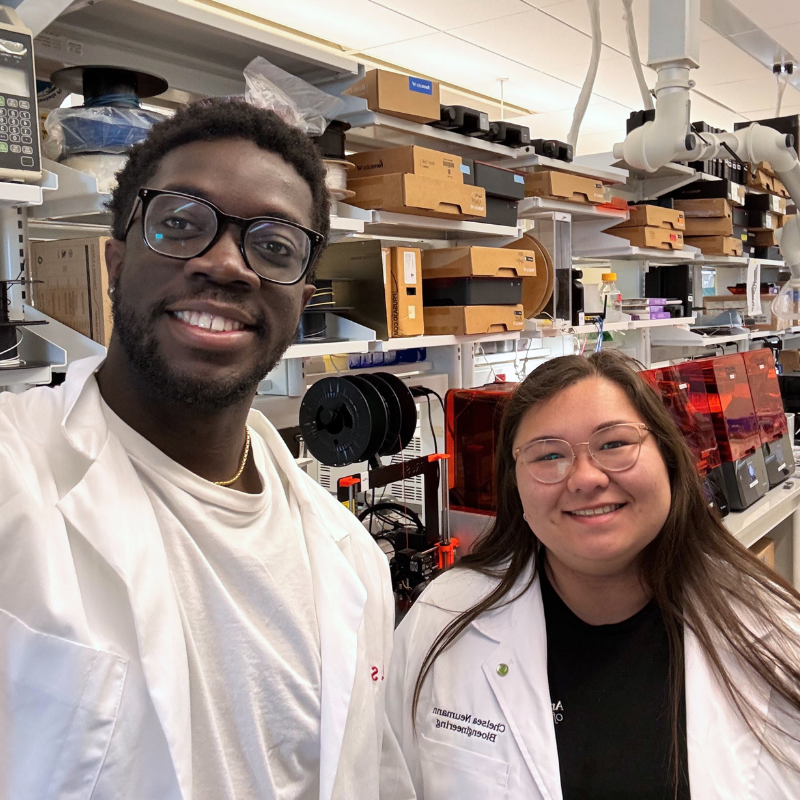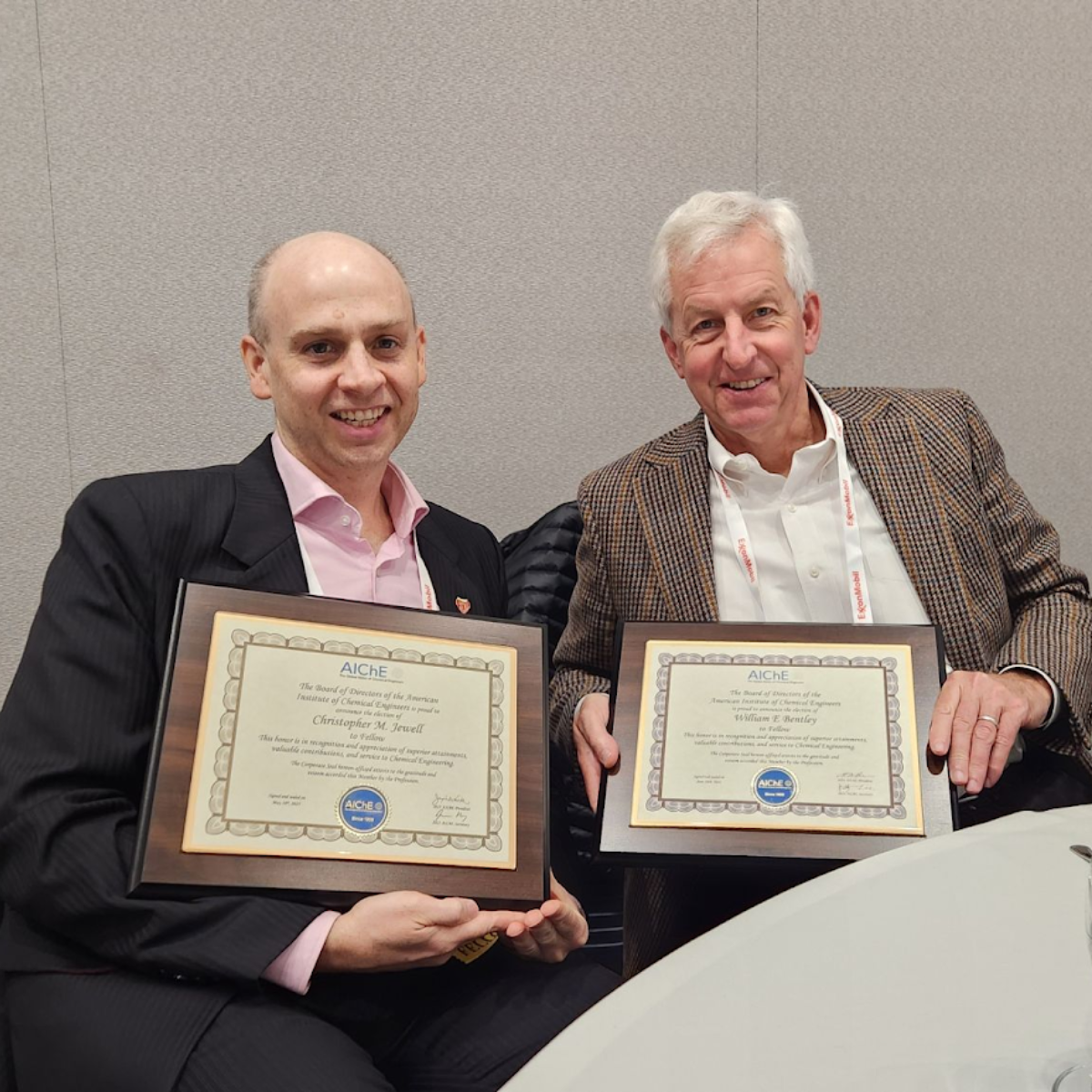News Story
Chemical Engineer’s NSF CAREER Award To Address Women’s Health Disparities

A chemical engineer developing specialized therapies for women’s health was named a recipient of the National Science Foundation’s Faculty Early Career Development Program (CAREER) Award—making a step forward in addressing gaps in gynecological care.
Hannah Zierden, an assistant professor in the Department of Chemical and Biomolecular Engineering, will lead a new initiative that integrates research and education to advance knowledge of the female reproductive tract. The CAREER award is her latest recognition for ongoing work in the Zierden Lab.
“I am incredibly honored to receive the NSF funding support for our work, and excited to begin diving into our hypotheses in hopes of uncovering mechanisms that drive female reproductive health,” said Zierden.
The assistant professor will investigate the vaginal microbiome—a home for living bacteria in the female reproductive system—which is responsible for promoting the overall health in this tract, hoping to understand how new treatments could evolve from biological systems.
She will focus on studying bacterial extracellular vesicles (bEVs), which are biological nanoparticles released by bacteria that enable cell communication between bacteria and host cells, with potential implications for female reproductive diseases. How bEVs come to form is unknown, and there is generally limited knowledge surrounding their fate and function within the female reproductive tract. These limitations slow progress towards treatments for infertility, preterm birth, and sexually transmitted infections. Zierden’s goal is to understand how bEVs impact women’s health throughout the lifespan.
Given what researchers understand about bEVs, these organisms are a growing area of interest as a therapeutic technology given their physical properties. In other words, bEVs could someday be used to deliver treatments within the female reproductive tract.
“The human body sends a wide variety of signals to coordinate biological functions. Some of those signals are sent by bacterial cells–including bacteria in the female reproductive tract. While bEVs have gotten a lot of attention in recent years, bEVs from vaginal bacteria have been largely neglected. If we can understand the interactions between bEVs and female reproductive tract cells, we will build a foundation for using bEVs as a potential therapeutic for women’s health,” the assistant professor said.
The educational portion of the initiative aims to spark interest in the microbiome sciences within pre-college student populations. In collaboration with the Baltimore Underground Science Space, Zierden will establish an internship program for students from local community colleges. She will also recruit high school students to her lab to provide them with experiential learning opportunities while working towards her research goal.
Zierden, who joined the faculty in the Fall of 2022, becomes the eighth scholar in the department who has earned the recognition.
“Zierden’s innovative approach to investigating drug delivery in the vaginal microbiome is a testament to her dedication and to our department’s commitment to advancing women’s health. We look forward to seeing the impact of her work, which has tremendous potential to reshape how we think about gynecological care and inspire the next generation of engineers,” said department chair Peter Kofinas.
Published June 4, 2025









